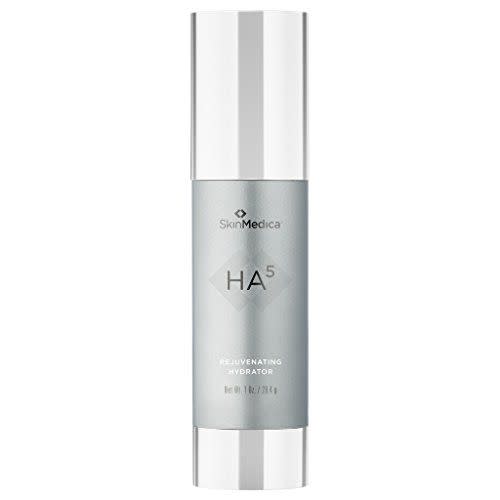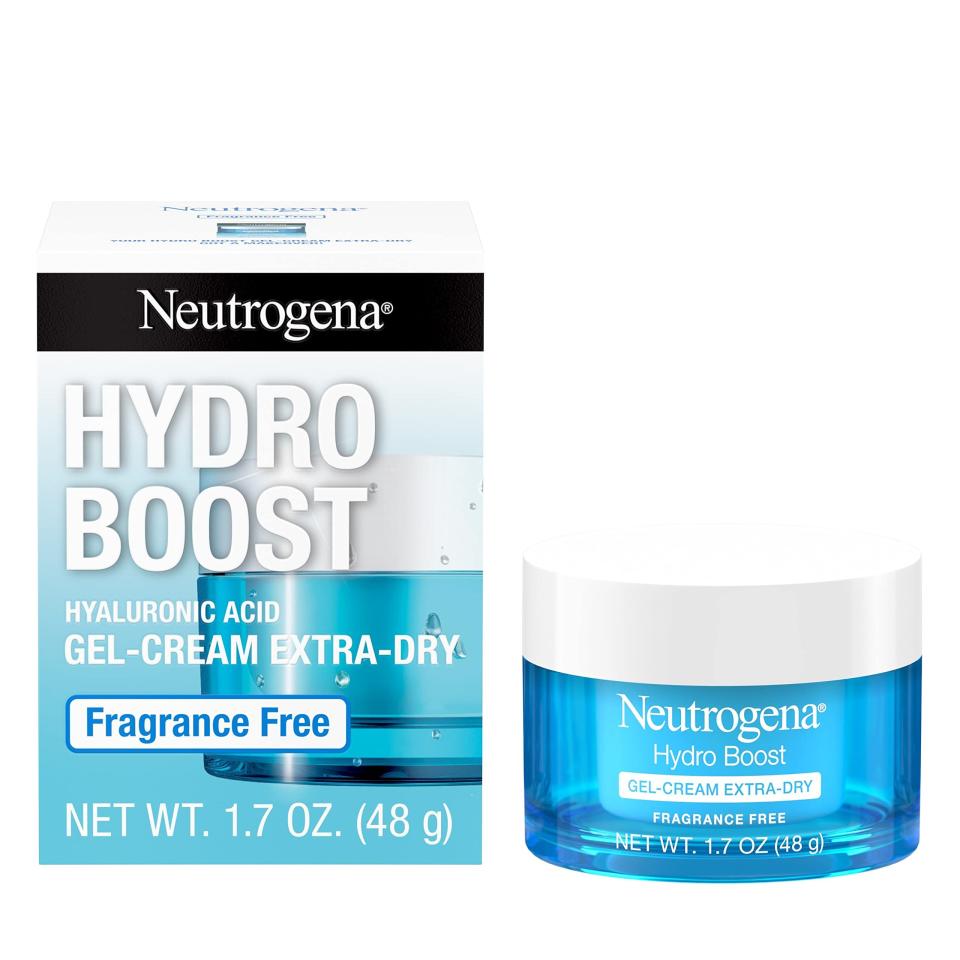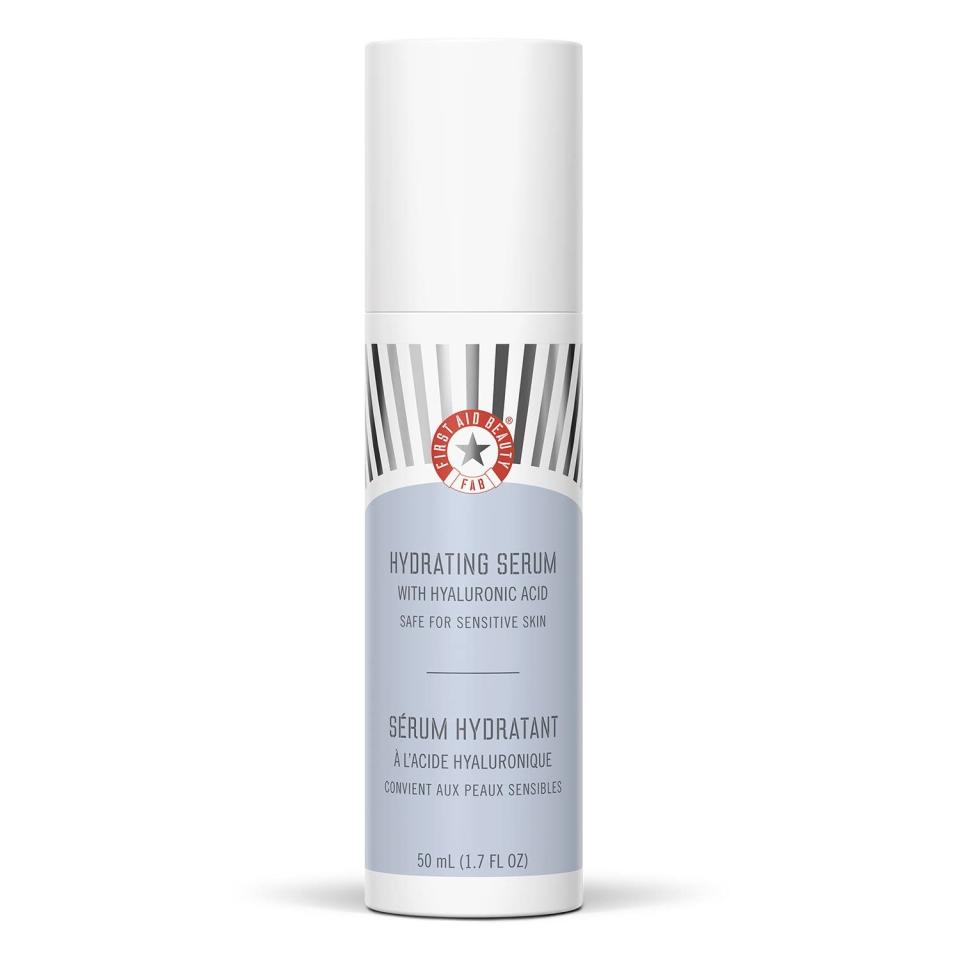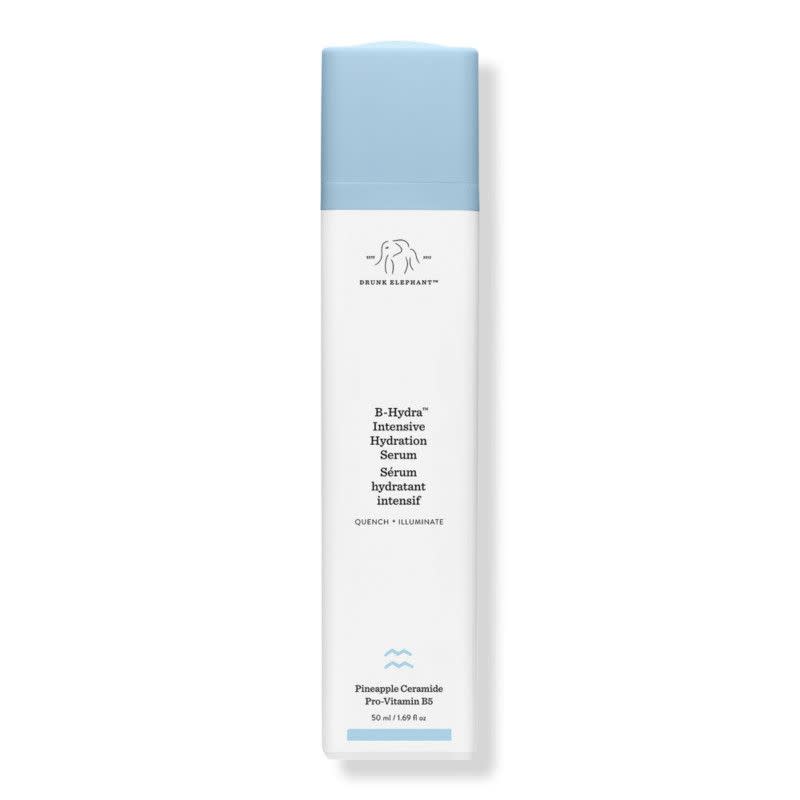Why Hyaluronic Acid Is The "It-Girl" Of Skincare Ingredients
"Hearst Magazines and Yahoo may earn commission or revenue on some items through these links."
If you're like me, odds are you're willing to jump at any opportunity to try new skincare products. But every now and then you might see an advertised ingredient that makes you think, "This sounds great, but what exactly can it do for my skin?" There are tons of ingredients that might come to mind in that scenario, but one that you've likely seen on hundreds of skincare labels in the last few years is hyaluronic acid.
Meet the experts: Mona Gohara, MD, is a board-certified dermatologist, Women's Health Advisory Board member, and associate clinical professor for the department of dermatology at Yale School of Medicine. Richard Parker is a cosmetic chemist and founder of RATIONALE.
Hyaluronic acid is like the "it-girl" of skincare ingredients for many reasons, but mostly because it's super hydrating and is safe to use on multiple skin types with little to no negative side effects. "It's a natural humectant found in our skin and around our joints and bones that acts to absorb water and hydrate the skin naturally," says Mona Gohara, MD, a board-certified dermatologist and Women's Health Advisory Board member.
"We achieve moisturization through increasing the water content of the skin, and the fastest way to increase water content is through a process called humectantcy, which means it's attracting and binding moisture in the skin," says Richard Parker, cosmetic chemist and founder of RATIONALE. With this in mind Parker adds that the synthetic derivative of hyaluronic acid is one of the fastest ways to improve facial appearance because of its ability to moisturize the skin.
Now that you know the basics, here's everything to know about hyaluronic acid, from the benefits to the side effects and more.
What are the benefits of hyaluronic acid?
ICYDK, there are a few notable benefits to using hyaluronic acid. Here's a breakdown of what to expect.
Improves the appearance of fine lines and wrinkles: If this is high on your list of skincare concerns, you'll be happy to hear that fine lines and even slightly deeper wrinkles are superficial and are usually caused by dryness from the skin's top layer, says Parker. That means that hyaluronic acid can help you achieve a dewy and radiant look after one use. Of course, this differs from wrinkles caused by movement of the face (like deep wrinkles on the forehead, eyes, and mouth). "[Those wrinkles] are caused by contractions of the muscles folding the skin, and eventually the fold becomes permanent," explains Parker. "Hyaluronic acid is not going to be any help for those types of deeper lines and wrinkles."
Plumps and firms skin: Ready for some science? The human body contains about 15 grams of hyaluronic acid, according to a study from the European Journal of Cell Biology. That might not sound like a lot, but one gram of hyaluronic acid can actually hold six liters of water, says Parker. There are two ways hyaluronic acid attracts and binds water to the skin. "It either draws water up from the skin's deeper layers, which are always moist and never dry out from the dermis," says Parker. "Or it can attract water from the atmosphere and bring it down into the skin that way."
Heals wounds: While this benefit might seem shocking, some research indicates that it could be possible. "Hyaluronic acid absorbs water and nutrients to the wound site and that can help the wound heal quicker," says Dr. Gohara.
Who should use hyaluronic acid?
If you're wondering whether or not you should be using hyaluronic acid, consider this an easy yes. In fact, Parker recommends that everyone incorporate the ingredient in their at-home regimen.
Of course, there are also specific subcategories of people who can really bank on the benefits of hyaluronic acid, including women in their 40s and people with sun damage. "In your 40s, estrogen starts to plummet around perimenopause, causing dry skin," says Dr. Gohara. She recommends double moisturizing by using a hyaluronic acid base followed by a traditional moisturizer on top.
As for sun damage, this is something Dr. Gohara says people begin to notice in their 30s due to the loss of natural hyaluronic acid, collagen, and elastin. "The skin begins to sag and becomes less firm, which is using hyaluronic acid is great to add in your skin routine," she says.
What are the side effects of using hyaluronic acid?
Hyaluronic acid is already naturally produced by the body, so even when using it in a topical form, the chances of experiencing any negative side effects are very slim. Theoretically, irritation can stem from mixing it with other products, but again, that would be a rare occurrence, says Dr. Gohara. To be on the safe side, she suggests those with acne, rosacea, eczema, or sensitive skin check in with a dermatologist before adding it to your routine.
"Hyaluronic acid is one of those anti-aging ingredients that is compatible with a lot of skin types," she says. "Plus, it's also plays nice in the sandbox with other ingredients. So you can combine it with vitamin C, retinol, niacinamide, and peptides."
Additionally, there's no such thing as using too much hyaluronic acid. "You can't overdose on hyaluronic acid," says Parker. "It's not going to harm your skin in any way. It just won't be effective if you don't need it."
Hydrating Hyaluronic Acid Serum

Hydrating Hyaluronic Acid Serum
ulta.com
$25.99
ulta.comHA5 Rejuvenating Hydrator

HA5 Rejuvenating Hydrator
amazon.com
$124.00
amazon.comHydro Boost Hyaluronic Acid Face Moisturizer Gel-Cream

Hydro Boost Hyaluronic Acid Face Moisturizer Gel-Cream
amazon.com
$24.99
amazon.comHyalu B5 Pure Hyaluronic Acid Serum

Hyalu B5 Pure Hyaluronic Acid Serum
amazon.com
$39.99
amazon.comHydrating Hyaluronic Acid Serum

Hydrating Hyaluronic Acid Serum
amazon.com
$28.80
amazon.comB-Hydra Intensive Hydration Serum

B-Hydra Intensive Hydration Serum
ulta.com
$48.00
ulta.comHow to get the most benefits from hyaluronic acid
As it turns out, knowing your skin type can play a big role in the products you decide to invest in and the overall results it has on your skin.
"If you've got dry skin, a cream's going to be better for you because it has more oil in it, and it's going to seal moisture in," says Parker. "If you've got oily skin and you tend to break out a lot, you want to avoid oil, and that's where we'd recommend a serum." Additionally, pairing hyaluronic acid with other key ingredients such as niacinamide, vitamin B3, vitamin E, vitamin A can also be helpful, adds Parker.
On the other hand, Dr. Gohara finds serums to be the best method of application overall because "it's a highly concentrated delivery method that's easy to layer under a whole bunch of other products," she says.
You Might Also Like

